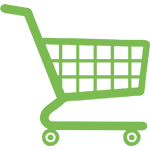Health Benefits of Vitamin B12 Supplementation

Health Benefits of Vitamin B12 Supplementation
Vitamin B12 is a vital nutrient that plays a significant role in maintaining various aspects of our health. In this comprehensive guide, we'll explore the top health benefits of vitamin B12 supplementation, emphasizing its importance for individuals with varying dietary needs and health conditions.
Maintaining Healthy Nerve Function
Vitamin B12 supplementation offers a wide range of health benefits, with one of the most prominent being its crucial role in maintaining healthy nerve function. This essential vitamin plays a vital part in the formation of the myelin sheath, a protective layer around nerves that facilitates efficient nerve signal transmission. Without an adequate supply of vitamin B12, nerve cells can become damaged, leading to symptoms such as numbness, tingling, and even more severe neurological issues. Therefore, ensuring a sufficient intake of vitamin B12 through supplementation can help safeguard against nerve-related disorders and support overall nervous system health.
Supporting Red Blood Cell Production
Beyond its vital role in nerve health, vitamin B12 supplementation is also recognized for its contribution to red blood cell production. This vitamin plays a pivotal role in the synthesis of hemoglobin, the protein responsible for transporting oxygen throughout the body. Without sufficient vitamin B12, the body may produce larger, misshapen red blood cells, leading to a condition known as megaloblastic anemia. This condition can result in fatigue, weakness, and shortness of breath due to the reduced oxygen-carrying capacity of the blood. Vitamin B12 supplementation can help prevent or treat this form of anemia, ensuring that the body's cells receive the oxygen they need to function optimally.
Ensuring DNA Integrity
In addition to its impact on nerve function and red blood cell production, vitamin B12 plays a crucial role in maintaining healthy DNA. This vitamin is involved in the conversion of homocysteine, a naturally occurring amino acid, into methionine, another amino acid critical for DNA synthesis and repair. Without adequate vitamin B12, elevated levels of homocysteine can accumulate, potentially causing DNA damage and increasing the risk of mutations and cellular dysfunction. By ensuring an ample supply of vitamin B12 through supplementation, individuals can help reduce the risk of genetic abnormalities and maintain the integrity of their DNA.
Enhancing Cognitive Function and Mental Well-Being
Vitamin B12 supplementation also supports cognitive function and mental well-being. This vitamin is essential for the production of neurotransmitters, including serotonin and dopamine, which play significant roles in regulating mood, memory, and overall mental health. Insufficient levels of vitamin B12 have been linked to mood disorders such as depression and cognitive decline in older adults. By maintaining optimal vitamin B12 levels through supplementation, individuals can support their mental clarity, emotional stability, and overall cognitive function, enhancing their quality of life.
Promoting Heart Health
Furthermore, vitamin B12 is crucial for maintaining heart health and reducing the risk of cardiovascular diseases. Elevated levels of homocysteine, resulting from vitamin B12 deficiency, have been associated with an increased risk of heart disease and stroke. By addressing this deficiency through supplementation, individuals can help lower their homocysteine levels, thus reducing the risk of cardiovascular issues. Additionally, vitamin B12 supports the conversion of dietary fats into energy, helping to maintain healthy cholesterol levels and prevent the buildup of arterial plaque, which can lead to atherosclerosis and heart-related complications.
Conclusion
In conclusion, vitamin B12 supplementation offers a multitude of health benefits that extend beyond nerve function and red blood cell production. It plays a vital role in maintaining healthy DNA, supporting cognitive function and mental well-being, and promoting heart health. Ensuring an adequate intake of vitamin B12 through supplementation can safeguard against nerve-related disorders, anemia, genetic abnormalities, mood disorders, and cardiovascular diseases. These benefits underscore the importance of including vitamin B12 as an essential component of a balanced diet or as a supplement, especially for individuals with dietary restrictions or absorption issues.




 Over 500 health and wellness products
Over 500 health and wellness products Everyday savings and weekly promotions
Everyday savings and weekly promotions The best natural and organic produce from around the world
The best natural and organic produce from around the world Committed to you - over 10 years of trusted service
Committed to you - over 10 years of trusted service



